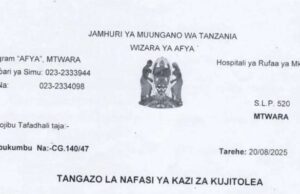Getting a scholarship to study in Europe as a child or young student involves a few important steps. Here is a general guide to help you through the process:
1. Available Research Subjects
– European Union Programs: The EU offers scholarships like Erasmus+ for students at various levels. It is primarily aimed at college-level students, but some programs cater to younger students as well.
– Country Specific Scholarships: Many European countries offer scholarships to international students, including those in secondary or preparatory education. Examples include DAAD in Germany, Campus France, or Chevening in the UK.
– Private Organizations and Non-Governmental Organizations: Organizations like the Soros Foundation, Rotary International, and others provide scholarships for students from specific regions or with special needs.
– Special School Scholarships: Some European schools offer direct scholarships. Research schools that have financial aid or scholarship programs for international students.
2. Determine Eligibility
– Age Requirement: Make sure the scholarship applies to the child’s age group.
– Academic Criteria: Some courses require a certain level of academic achievement.
– Language Proficiency: For most courses in Europe, proficiency in the language of instruction (often English, French, or German) is required.
3. Prepare the Documents
– Academic Records: Collect transcripts, report cards and any standardized test scores.
– Personal Statement or Essay: Many courses require a personal statement. Tailor this to the specific scholarship, highlighting why the child is a strong candidate.
– Letters of Recommendation: Get letters from teachers or counselors who can confirm the child’s academic abilities and character.
– Language Certificates: If required, obtain language proficiency certificates such as IELTS, TOEFL, or other relevant tests.
4. Apply for multiple Scholarships
– It is advisable to apply for several scholarships to increase the chances of success. Track deadlines and ensure all documents are submitted correctly.
5. Prepare for Interviews or Tests
– Some studies may require additional interviews or tests. Prepare thoroughly by practicing common interview questions and reviewing any subjects that may be attempted.
6. Follow up
– After applying, follow up with the scholarship provider to confirm receipt of your application and ask about the decision schedule.
7. Consider Financial Aid as a Supplement
– If scholarships do not cover all costs, explore other financial aid options such as loans, grants, or work-study programs.
Additional Tips:
– Consult with Education Agencies: Some countries have education agencies that specialize in helping students get scholarships and admission to schools abroad.
– Join Online Communities: Forums and social media groups focused on studying abroad can be useful for getting advice from other students and parents.
Would you like more specific information on one of these points?

















zai99y
o8hma8